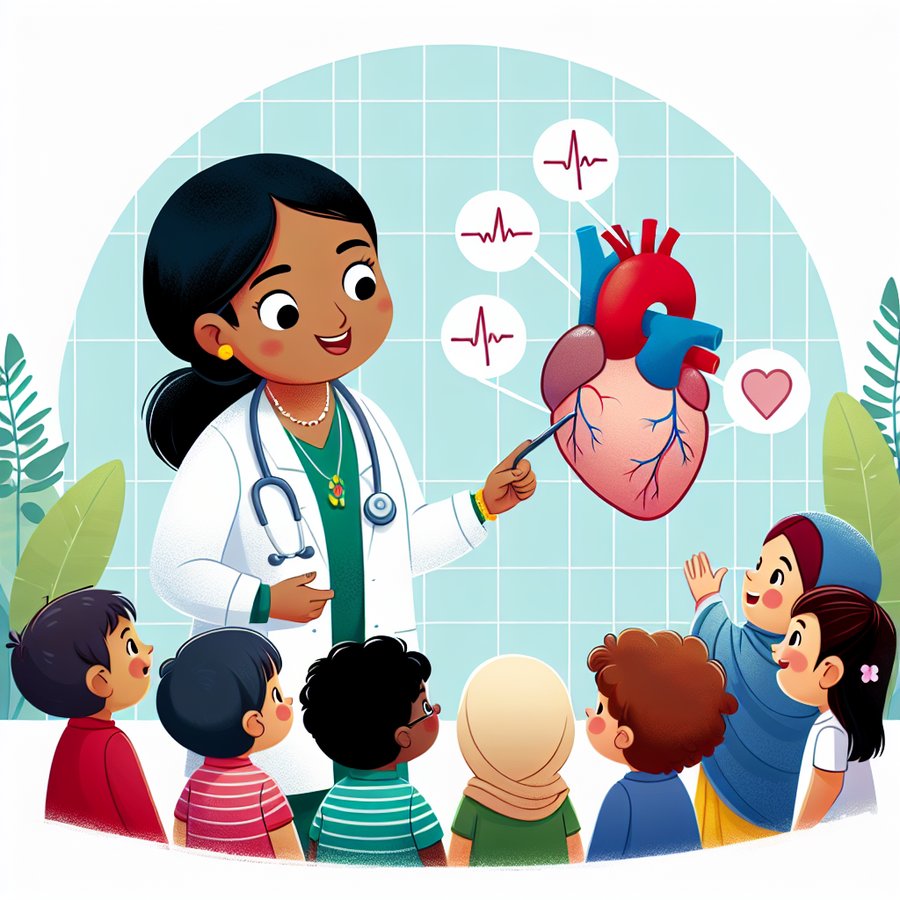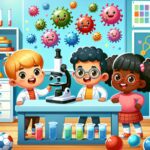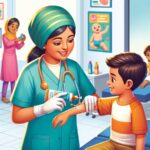Congenital Heart Disease (CHD) is a term that can evoke worry and concern in any new parent’s heart. It refers to a range of birth defects that affect the normal functioning of the heart, present from birth. This comprehensive guide aims to shed light on CHD, helping new parents understand what it is, how it’s diagnosed, and the treatment options available, along with providing the support you need during this journey.
What is Congenital Heart Disease in Babies?
Congenital Heart Disease in babies encompasses a variety of heart abnormalities that a baby is born with. These defects can affect the heart’s structure, how it works, or both. The term ‘congenital’ means that these heart issues are not acquired after birth but are present from the outset. While some forms of CHD are mild and may not require any treatment, others can be more severe, necessitating immediate medical intervention.
According to the Centers for Disease Control and Prevention (CDC), CHD affects nearly 1% of births in the United States each year. This statistic highlights the importance of understanding and recognizing the signs and symptoms of CHD early on.
How is Congenital Heart Disease Diagnosed?
Diagnosis of Congenital Heart Disease typically involves a combination of prenatal ultrasounds, physical examinations after birth, and specialized tests if a heart defect is suspected. Prenatal ultrasounds can sometimes detect CHD before a baby is born, offering parents and medical professionals a head start in planning for any necessary treatments or interventions. After birth, doctors may listen for heart murmurs, investigate signs of heart failure, or perform tests such as echocardiograms, cardiac MRIs, or cardiac catheterizations to confirm a diagnosis.
It’s crucial for parents to attend all prenatal appointments and to communicate openly with their healthcare provider about any concerns or family history of heart defects, as this can increase the likelihood of early detection.
Understanding the Treatment Options for Congenital Heart Disease
The treatment for Congenital Heart Disease varies based on the type and severity of the defect. Some children may require medication to help the heart and lungs work more effectively, while others might need interventions such as catheter procedures or heart surgery to repair the defects. In some cases, a combination of treatments may be necessary to address the condition.
Advancements in medical science and surgical techniques have significantly improved the outcomes for babies with CHD. Many children with heart defects go on to lead healthy, active lives. Parents should work closely with a pediatric cardiologist to develop a tailored treatment plan for their child. This collaboration is key to managing the condition and ensuring the best possible outcome.
Supporting Your Child and Family Through the Journey
Receiving a diagnosis of Congenital Heart Disease can be overwhelming for any family. However, there is a wealth of support available. From healthcare teams that include pediatric cardiologists, nurses, social workers, and therapists, to parent support groups and resources online. Engaging with communities of families who have been through similar experiences can be incredibly valuable.
New parents should also consider seeking support from resources like Congenital Heart Disease information page on our website, which offers detailed information and guidance. Additionally, exploring comprehensive guides on developmental milestones and breastfeeding advice can empower parents with the knowledge to care for their child effectively.
Conclusion
Congenital Heart Disease in babies is a complex condition that requires early detection, careful management, and a supportive environment for the best outcomes. While the journey may be challenging, advancements in medical treatment and the wide range of support available provide hope and assistance to affected families. By staying informed, collaborating with healthcare professionals, and connecting with support groups, parents can navigate the challenges of CHD and help their children thrive.
Remember, you’re not alone in this journey. Utilize the resources available, ask questions, and seek support when needed. Your love and care, combined with expert medical attention, will make a significant difference in your child’s life.













